Robben Ford Interview: On the road with George Harrison & Eric Clapton
In this interview, we explore life, music, and much more from the perspective of legendary guitarist Robben Ford, known for his collaborative work with artists like Joni Mitchell, Miles Davis, and Kiss
Robben Ford Interview
Originally published on Planet Guitar. Original Interview by Paul Rigg. Presented here for the first time in its original untranslated form.
Not many of the world’s leading blues musicians would openly say that they don’t listen to contemporary blues, but then there are few artists like Robben Ford. On the one hand, he is warm, generous, and considerate, while on the other he is unafraid to speak his mind.
Ford also, of course, has played alongside many of the leading artists over the past 50 years and was named one of the top 100 guitarists of the 20th Century by Musician magazine. As he embarks on a new chapter to his storied life, he opens up to Gearnews about his favourite guitar, life on the road with George Harrison and Eric Clapton, and his lifelong passion for all things Italian.
You are currently viewing a placeholder content from Default. To access the actual content, click the button below. Please note that doing so will share data with third-party providers.
Gearnews: I understand you have recently moved to London…
Robben Ford: Yeah, we spent a year in Paris and found it edgy, so, we decided to cross the channel. We found an incredible house right by Hampstead Heath and love the greenery, coffee shop, little bookstore, market… and there are great musicians… we are happy here!
GN: Is it fair to say that you were raised in a musical family?
RF: For sure. My father played guitar and sang, he had worked professionally as a very young man, and he taught me my first chords on the guitar. My mother played piano and had a lovely voice. We sang a lot in church. Music was playing all the time in the house…
GN: You named your first band after your father – what motivated that?
RF: There were three brothers in the band and Charles Ford was the creator! He was proud of that.
GN: You sadly lost another brother in Vietnam…
RF: Yes, he was a Vet, and was involved with alcohol and a car accident. It was very sad, I was 21 or 22 at the time.
GN: Would you say that experience changed your outlook on life?
RF: We had never really been close. He was older and often away at school, and then in Vietnam. His life was very independent from ours, as we were all musicians. It was a shock, but I don’t know if it affected my outlook.
“Music was an escape”
GN: I’m trying to get a sense of what drove you to make music – your family environment, your love of blues – does that cover it?
RF: I feel I was born to be a musician, and music was it for me from as far back as I can remember. When you are a kid, you really don’t have a clue. I’ve always been very sensitive. Music was an escape – it was a safe place. I was afraid of everything outside [laughs], but with music I was free!
GN: You began playing saxophone at 10 and guitar at 14; why did you change instruments?
RF: Mike Bloomfield. I was 13 and bought his record, not knowing what it was. And I was just astonished because there was nothing like that anywhere; I’d never experienced that intensity. So, the blues opened a whole new way of expression for me.
GN: Could you tell us how your career got started?
RF: My group opened for Jimmy Witherspoon and he asked us to move to LA; so that was my first big break. Spoon was a legend – at 15, I had a record of his that I wore out, and was already a big fan. During that time, I was heard by pianist Roger Kellaway and bassist Max Bennett, and they told L.A. Express’s Tom Scott about me.
On tour with Joni Mitchell
I had flown down to LA to quit Spoon, because after two years I wanted to do my own thing, and Tom called that same day and invited me to join his band and tour with Joni Mitchell.
I immediately said ‘No’; It’s unbelievable the things I’ve said no to throughout my career! But he said let me come by and play you the acetate’s of LA Express and Joni Mitchell’s Court and Spark – the acetates; the records weren’t out!
But I didn’t like L.A. Express’s first record – to me it was very commercial pop jazz, and I was listening to Coltrane, Archie Shepp, Ronald Kerr and Ornette Coleman. But then he put on Joni’s record and I thought ‘Wow, this is beautiful!’ So I went over to A&M records, only to discover that there were other guitarists in a kind of an audition.
Larry Carlton was there to show guitar players the parts. Then Joni came in looking like a goddess, smiling, and beautiful. Later, Tom took me aside, and said ‘everybody wants you to play’. So although I didn’t like their music I decided to do it because I’d never played with musicians of that caliber – ever!
You are currently viewing a placeholder content from YouTube. To access the actual content, click the button below. Please note that doing so will share data with third-party providers.
GN: In 1974 you played on Joni’s ‘The Hissing of Summer Lawns’ and ‘Miles of Aisles’; does any particular anecdote come to mind now?
RF: First she was just the loveliest person, she was happy, it was a good period for her. Court and Spark communicated to a very large audience; after that, her music became a lot darker and more critical.
For an anecdote, I recall that the whole band rehearsed at SIR in LA one day. She had written two new songs, and someone said ‘Can you play that part again?’ but she couldn’t, she had to start at the beginning of the song [laughs]. That was such an unusual and interesting quirk!
GN: You have also worked with Bonnie Raitt, Rickie Lee Jones, Barbara Streisand, KISS, Barry Manilow, and Miles Davis [Robben laughs at the diversity of the list]. Were most of your collaborations a matter of luck or design?
RF: Well, I’m not saying they were begging me to play with them [laughs], but all those things just came. I never looked for work until I started doing my own thing and then I had managers and agents, and they did the looking. Record deals just came.

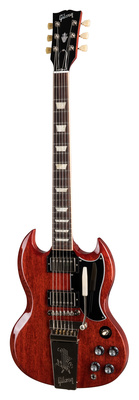
George Harrison and Ravi Shankar
GN: In 1974, you supported George Harrison and Ravi Shankar on their American tour; did you take the opportunity to play sitar?
RF: No. I bought a cheap sitar at one point to see what I might be able to do with it, but no way, man! [laughs]
GN: Do you remember that as a happy time with George?
RF: That tour was difficult because George was not himself. His voice was just a disaster, hoarse, he couldn’t sing; like he was sick. It was sad. The band and horn section were great, and Billy Preston, holy mackerel, what a force of nature! but George just wasn’t ready for it.
You are currently viewing a placeholder content from Default. To access the actual content, click the button below. Please note that doing so will share data with third-party providers.
GN: Separately, your first wife influenced you to take up meditation – but I’m curious about that coincidence of dates in 1974; was George practicing meditation then?
RF: No. He certainly wasn’t practicing anything – quite the opposite, he was quite the party animal actually [laughs]!
GN: In October 2022 you opened for Eric Clapton in Italy; have you known him long?
RF: I had met him around 1989 in New York and chatted with him when he was working with David Sanborn on the soundtrack to [Lethal Weapon]. And then in the 1990s, my band opened for the Legends – Eric, Joe Sample, Steve Gadd, and Marcus Miller. So, Italy was the third occasion, but he is very protective of his time. I’ve never really had the chance to hang out with him.
“Italy… …Realm of the Senses”
GN: Did you explore any Italian cities?
RF: Oh, I have been going to Italy for years and years man, I’ve probably spent more years there than in any other country in the world. My promoter there is a close friend. I call it the Realm of the Senses, the pleasure realm – incredible food, the clothes; everything about it is just great!
GN: You have a collection of around a dozen guitars that are special to you; what guitar did you use on those dates in Italy, and why?
RF: The sets were only 35 minutes, so I used my 1960 Telecaster, which is always my ‘go-to’. Guitars change because they are wood, but the Tele is as solid as a rock. It doesn’t feel like it, but it is; it is a lovely old instrument. Anyone whoever plays it says ‘this is the best Tele I have ever played’ and it is, it is the best Tele in the world! [laughs]

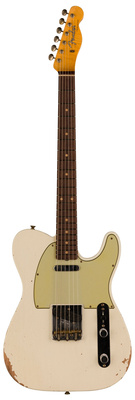
GN: You said you sometimes don’t play guitar for weeks after a tour; do you turn to other instruments in those moments?
RF: I use the piano a lot for composing.
Are you familiar with the jazz guitarist Kurt Rosenwinkel? He is super-musical, an awesome guitarist, an incredible technician – he’s the cat! He often warms up for four hours before a show! I also work hard on tour, I play very aggressively, and my knuckles hurt at the end, so I need to put it down and rest!
Our interview closes with Gearnews mentioning other contemporary artists like Larkin Poe, Joe Bonamassa, and Samantha Fish, and asking if the blues is in a healthy moment? “I don’t know,” Ford replies. “I suppose Bonamassa is fundamentally a blues guitarist, but it’s rock! I heard Samantha Fish play years ago when she opened some shows for me, but I don’t follow the music. In short, I don’t follow the blues world, you know.”
GN: Thank you for being so candid and open!
RF: You’re welcome, I’ve enjoyed it!
You are currently viewing a placeholder content from YouTube. To access the actual content, click the button below. Please note that doing so will share data with third-party providers.
More about Robben Ford:
- Official artist page
- More interviews
*Note: This article contains advertising links and widgets that help us fund our site. Don’t worry: the price for you always stays the same! If you purchase something through these links, we receive a small commission. Thank you for your support!
One response to “Robben Ford Interview: On the road with George Harrison & Eric Clapton”

 4,8 / 5,0 |
4,8 / 5,0 | 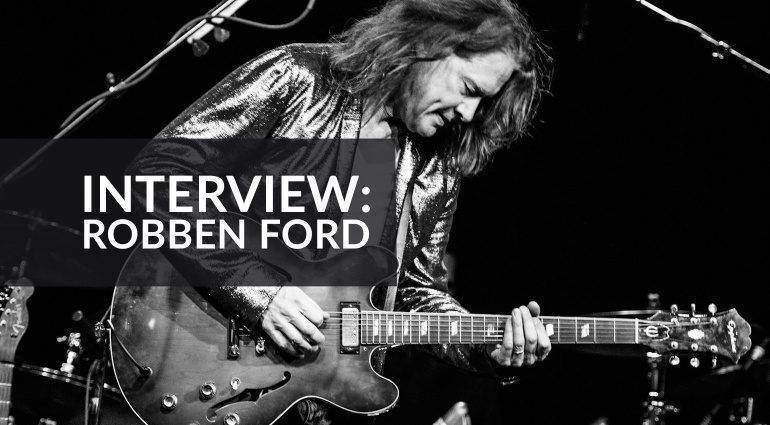


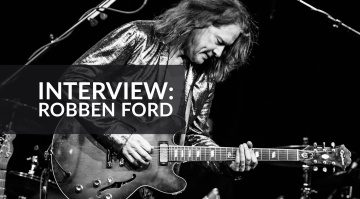

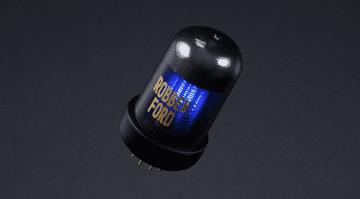
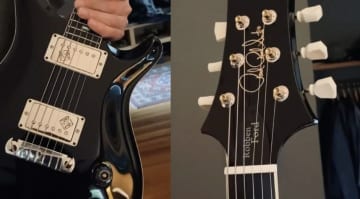
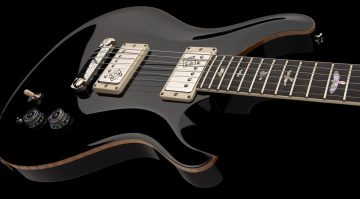
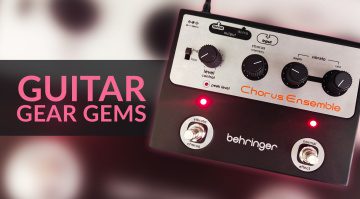

great stuff!